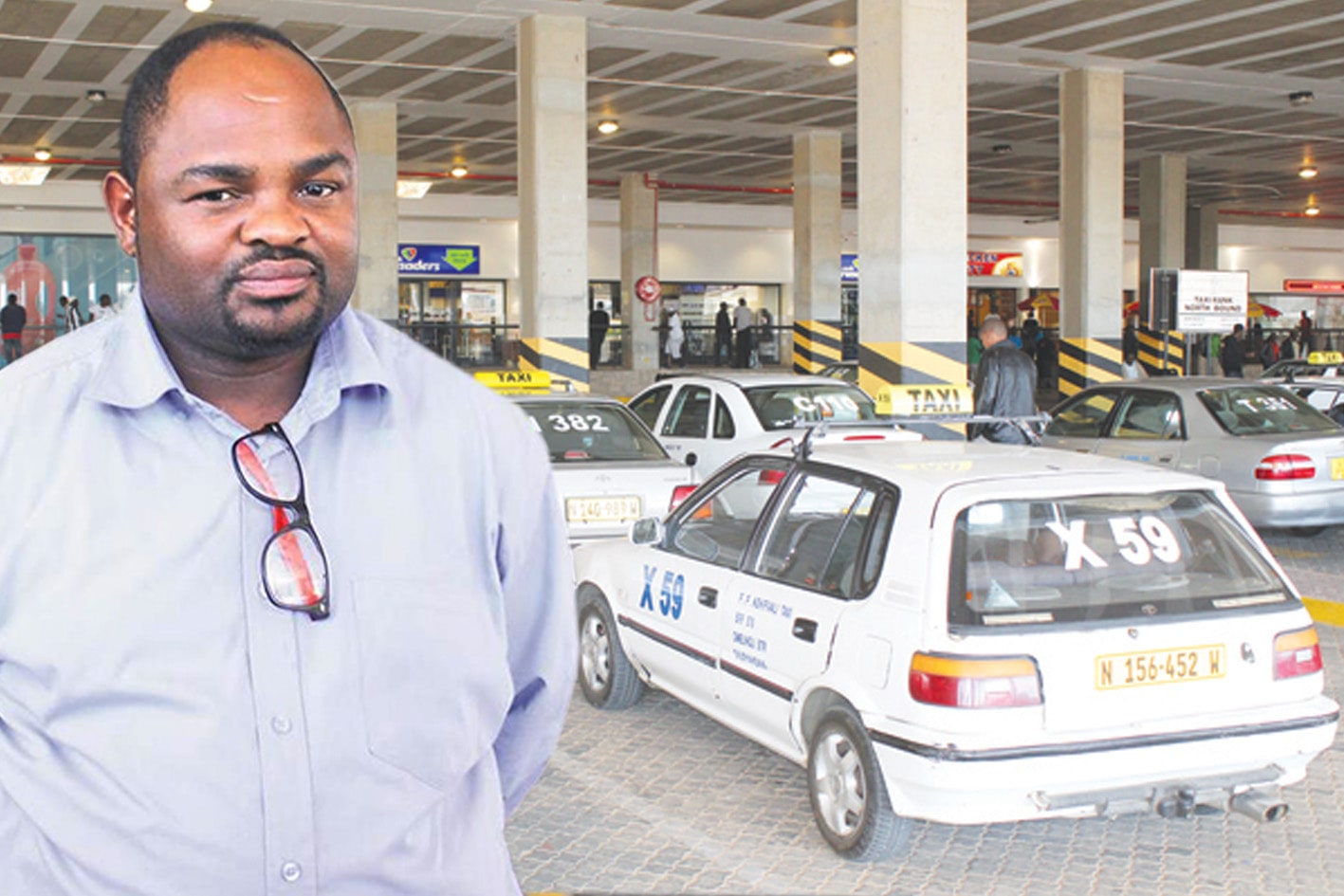Steve Nashama
The Namibia Transport and Taxi Union(NTTU) says it will not be discouraged by public opinions on its intention to increase taxi fare by 100 percent, which would mean N$26 per trip. The union’s President, Werner Januarie says the increment is more than justified, since they put in the request about three years ago. The current taxi fare stands at N$13.
The union’s request follows an announcement made by the Ministry of Mines and Energy about the increase of petrol prices. Diesel prices remain unchanged, the ministry said.
Januarie said It has been about two to three years since they last received a price increase, while the cost of fuel continues to increase, adding that it is fair that they receive a 100 percent price increase.
He further said there are many other factual activities forcing the union to push for the price increase including the cost of vehicle general services which, he says increases regularly, people transporting without the necessary documents and required transport permits, paying for permits, paying for additional cost at City of Windhoek and the cost of NaTIS.
“A taxi is a business just like any other business. It cannot keep operation at loss, it must make a profit. Therefore, as a union, we are more than justified on the 100 percent price increase,” he says.
Januarie added that the union’s interest is the interest of their members, and it is also busy addressing issues affecting taxi operation.
Asked if the N$ 26 demand will not affect their market competition and customers who struggle with the current taxi price, Januarie says they are pushing the government to do the right thing.
He also says that they are never informed or consulted before government announces fuel prices. He also added that a court case relating to the 100 percent increment is scheduled for next week Monday in which all questions related the demand for a 100% increase in taxi fares will be addressed.
Deputy Minister of Mines and Energy, Cornelia Shilunga says the change of fuel prices does not only affect the taxi prices, it affects all transport in the country and elsewhere.
Shilunga added that the Namibia do not produce oil yet, and that makes the government to adjust to the oil market itself. “When you do not produce oil, you only stick to the adjustment of the market itself”.
Last week, the Ministry of Mines and Energy announced that petrol prices will increase by 150 cents per litre while diesel will remain unchanged. Petrol prices in Walvis Bay will become N$19.78 per litre while diesel will remain at N$20.65 per litre. Petrol prices across the rest of the country will be adjusted accordingly, and the adjustment is expected to be effective today midnight,1st of March 2023.
The ministry spokesperson Andreas Simon says the increase in petrol price has been necessitated by an under-recovery of N$1,87 per litre recorded in the previous month.
He says the ministry foresees the turbulent times ahead judging from the unstable situation which continues to persist in the international oil market.
Simon says although many central banks continue to increase interest rate to counter inflation, oil prices could still rise due to carefully managed undersupply and a rebound in demand.
He emphasized on the Russian Federation which has been hit with an embargo by the European Union on its oil industry, has announced a cut in production of about 500 000 barrels per day for March. However, the International Energy Agency (IEA) and the Organisation of Petroleum Exporting Countries (OPEC) have both raised their 2023 demand outlooks due to expectations of a Chinese recovery.
Yet, the ministry will continue to work diligently toward ensuring the security of the fuel supply is maintained, and the fuel prices are stabilized, Simon added.
Efforts to get comment from the Namibia Bus and Taxi Association (Nabta) and the Ministry of Works and Transport ended in vain.




